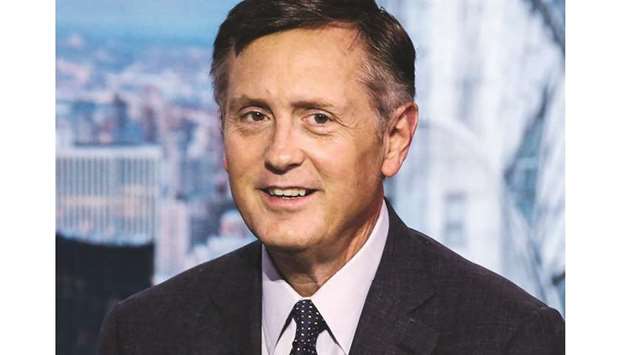Federal Reserve vice-chairman Richard Clarida said the US central bank will defend both sides of its inflation target and cautioned investors against thinking the Fed would act to halt a sharp market decline.
“I don’t really think of it as a useful way to describe what the current Federal Reserve is doing,” he said when asked about the concept of a “Powell Put” in an interview with Tom Keene on Bloomberg Television.
Clarida, who took his post in September, said the Fed would tolerate inflation rising slightly above its stated 2% target for inflation.
“We have a symmetric objective around 2%,” he said. “Two percent is not meant to be a ceiling. We’ve operated below 2%, we could operate somewhat above 2%, depending on the shocks.”
He added, however, that the Fed has been more focused in recent years on preventing inflation from falling below its target than drifting above.
Clarida said twice during the interview that central banks — including America’s — need to protect their inflation targets as global forces push prices below-target. Those comments come after the Fed governor indicated last week that inflation expectations are coming in on the lower end of the range consistent with price stability.
Fed officials are widely expected to raise rates when they gather in Washington December 18-19. Their actions after that have become somewhat less certain. Chairman Jerome Powell hinted on November 28 that policy makers may be less aggressive about raising rates in 2019 than they were this year.
The Fed’s preferred gauge of inflation, after stripping out volatile food and energy components, dipped to 1.8% in the 12 months through October.
“In recent decades, the asymmetry has been toward disinflation forces,” Clarida said in the interview. “We are in a world where central banks, including the Fed, are focused on keeping inflation away from disinflation.”
On communications policy, the Fed Board’s No 2 official said the central bank had no plans to drop the so-called dot plot, which displays Fed officials’ interest-rate projections. The dot-plot is “not going anywhere, but over time they may evolve,” he said.
Before joining the Fed, Clarida was a Columbia University professor and a global strategic adviser at the Pacific Investment Management Co.

Clarida: Word of caution.
